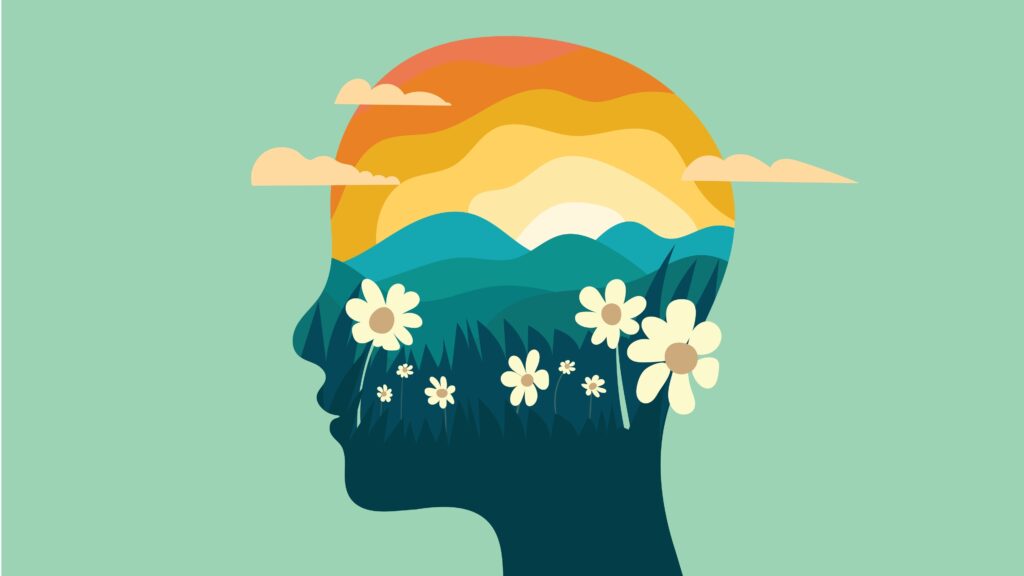The Brain–Home Connection: Why Outer Order Reflects Inner Calm
ABOUT
My mission is to transform spaces into those that empower my clients to be their ideal selves. With my guidance, you can experience the joy of an intentionally curated space that fosters creativity and personal growth.
WORK WITH ME
The items in one's space should should be intentionally arranged to promote efficiency, peace-of-mind, beauty, personal growth, ethical responsibility, and joy.
Your Organizing Personality
Not everyone gets organized in the same way.
FIND OUT MORE
ABOUT ME
August 27, 2025
Have you ever felt instantly calmer walking into a tidy room—or noticed your stress rises when surrounded by clutter? It’s not just in your head. Neuroscience research shows that our physical surroundings directly influence stress, focus, and even memory.
In this month’s blog, we’ll kick off Part 1 of a 7-part series exploring the science behind why your outer environment reflects your inner world. We’ll talk about how clutter affects your brain, why tidying changes your mood, and practical, research-backed steps to create a home that nurtures clarity and calm.

Clutter, Cortisol & the Brain
When your environment is visually cluttered, your brain faces a higher cognitive load—a fancy way of saying your mental bandwidth gets used up simply by processing the chaos around you.
Studies show that clutter can even change how information flows through your brain’s visual processing centers, while activating the stress response system that releases cortisol, the body’s primary stress hormone. Over time, this stress response can actually shrink areas of the brain responsible for memory and decision-making while enlarging the amygdala, which amplifies feelings of anxiety and overwhelm.
Inner State Meets Outer Order
Your prefrontal cortex has been called the brain’s “CEO” because it manages planning, decision-making, and self-control.
When you reduce clutter, you literally reduce stress signals in your brain, allowing the prefrontal cortex to stay in control rather than being overrun by the amygdala’s fight-or-flight response. That’s why organized spaces feel like an emotional reset: you’re supporting the very part of your brain designed to help you think clearly and stay calm.
What Science Tells Us About Order
Here are three key ways organization supports your brain:
- Lower Stress Levels: People report feeling calmer and more in control after decluttering. Even small wins—like organizing a single drawer—light up your brain’s reward centers, creating a positive feedback loop that makes it easier to keep going.
- Better Focus & Memory: A place for everything means fewer decisions and less mental clutter. Studies link tidy spaces to improved attention and task performance.
- Cognitive Efficiency: Organized environments reduce decision fatigue, helping your brain conserve energy for what really matters.
Practical Tips Backed by Neuroscience
Start Small, Start Clear
Target one small area for 15–20 minutes—a single drawer, counter, or shelf. The brain loves completion, and each win reinforces motivation.
Use Visual Hierarchies
Group items by purpose and frequency of use. Clear categories reduce visual noise and make spaces more intuitive to maintain.
Anchor Objects with Intention
Display only meaningful or frequently used items. Sentimental objects shine when not buried in clutter, while rarely used items can be stored out of sight to reduce stress triggers.
Reframe as Mindfulness
Decluttering isn’t just chores—it’s a form of mindfulness practice. As you organize, focus on sensory details: the feel of objects, the visual calm emerging, the mental space clearing.
Mini Case Study: Visual Clarity Boosts Focus
In one study, participants completed tasks in both cluttered and organized settings. Results showed significantly better concentration and accuracy in the organized environment, with participants reporting less mental fatigue and distraction.
This illustrates how an intentional environment supports both emotional well-being and cognitive performance.
Conclusion
Science confirms what we’ve always felt: your outer environment reflects your inner state. By creating order in your home, you’re not just tidying up—you’re literally supporting your brain’s ability to focus, stay calm, and make better decisions.
Next month, we’ll explore Neuroplasticity & New Habits: Training Your Brain for Organized Living, where you’ll learn how to rewire your brain for long-term change.
References
Yale News, “Visual clutter alters information flow in the brain” (2024, Neuron).
Nuvance Health, “How clutter affects your brain health.”
Royal Australian College of General Practitioners, “What does clutter do to your brain and body?”
Dowell HT Blog, “How clutter is linked to trauma.”
Verywell Mind, “5 Effects of Stress on the Brain.”
Psychology Today, “Clutter, cortisol, and mental load.”
Princeton research summary, “Visual clutter competes with attention and tires cognitive function.”
OUR SERVICES
COPYRIGHT © TRULY ORGANIZED 2023
DESIGN BY GIRLBOSS DESIGNER
INSPIRATION
HOME
SERVICES
BLOG
T & C'S
PRIVACY policy
ABOUT
CONTACT
FREEBIES
CLIENT LOGIN